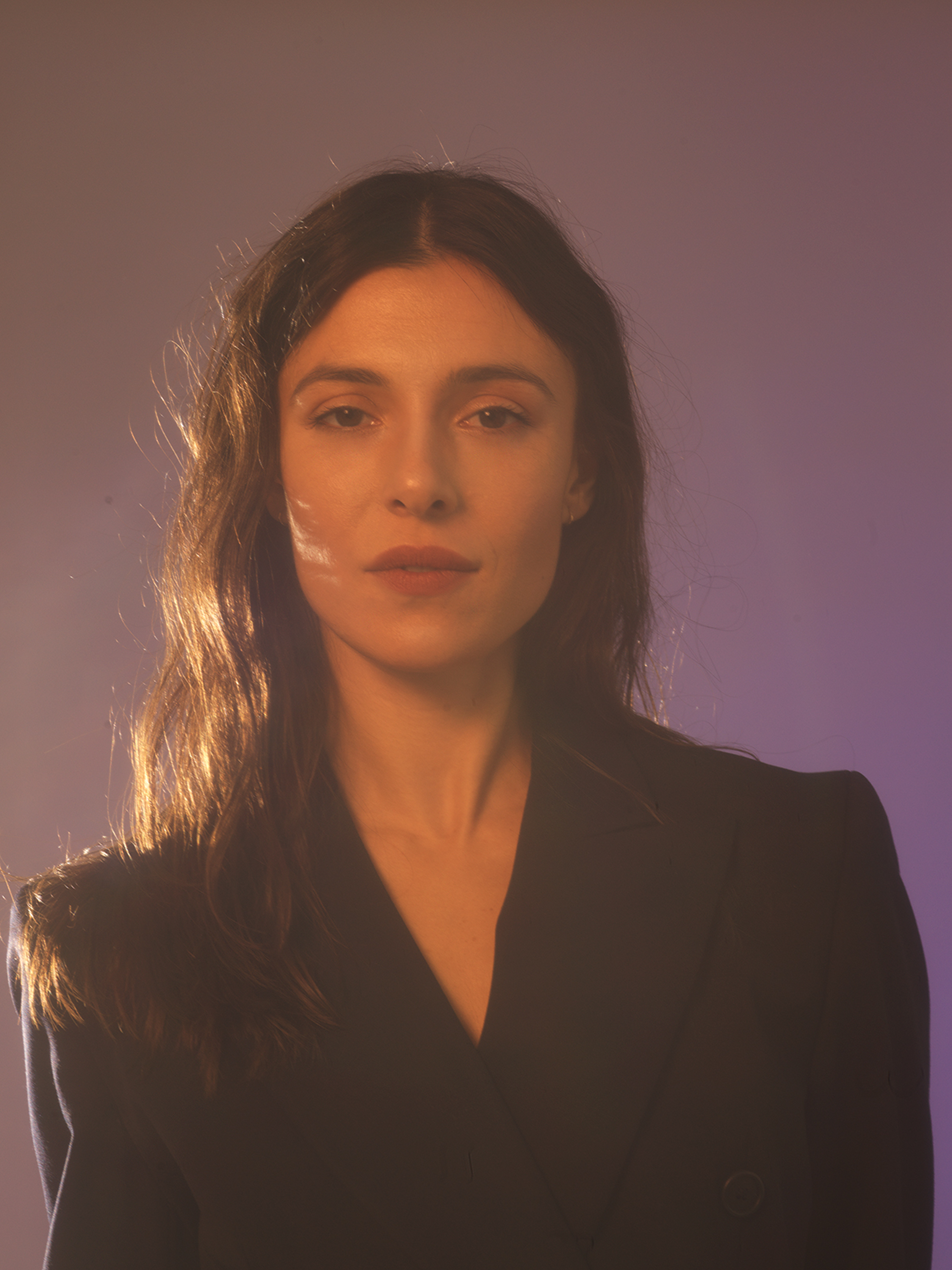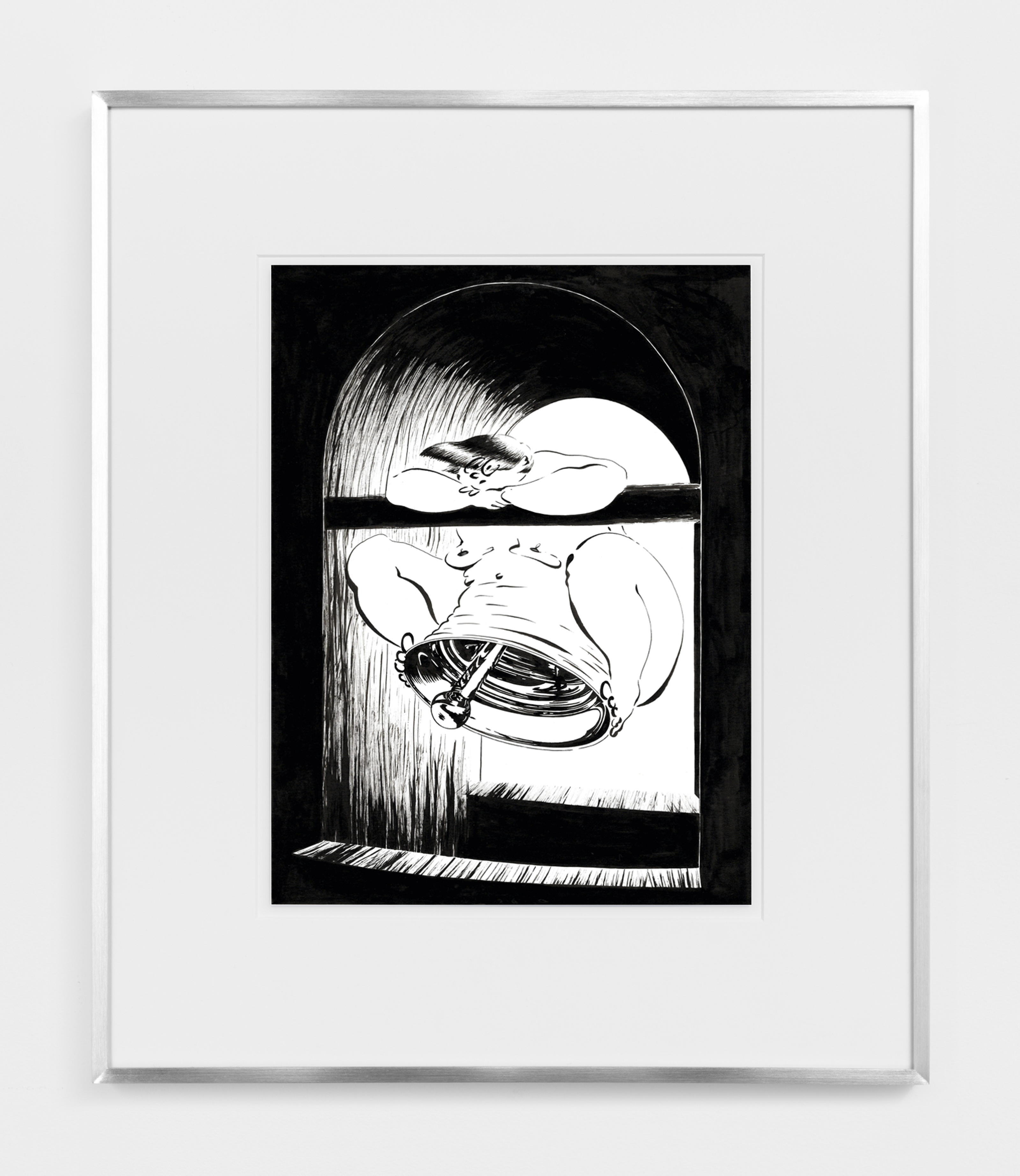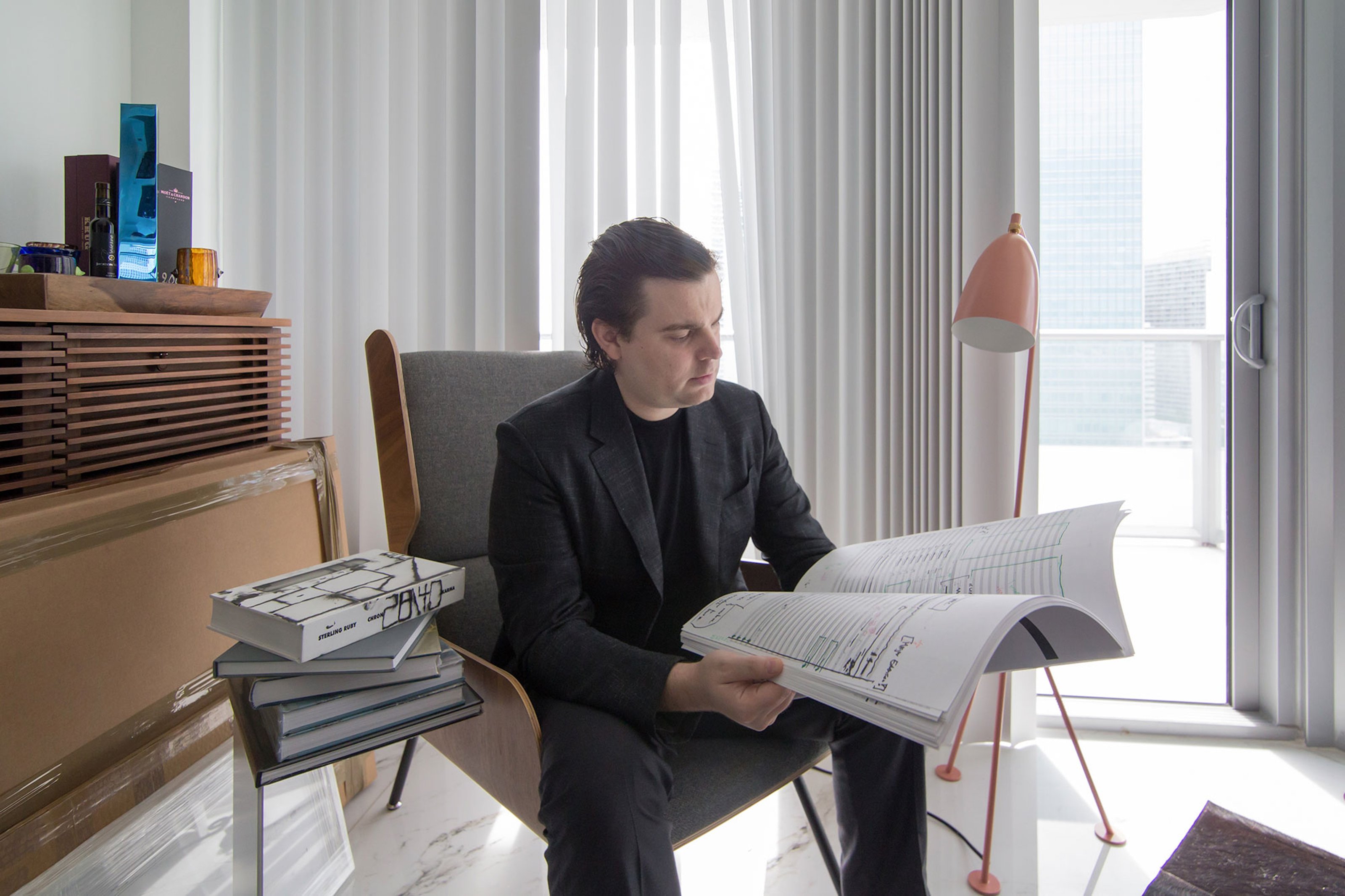In 2021, Roberto Toscano launched the Borlem Prize—a new initiative that rewards artists who highlight issues in mental health through their artwork. The prize grants artists a total of $40,000: half goes directly to the artist, and the other half goes to a mental health advocacy charity chosen by the artist. New York-based artist Daniel Turner was the inaugural winner of the prize. This year, Republic of Dagestan-born artist Ebecho Muslimova was awarded for her exploration of sexuality and the psyche. Alaina Macarthy interviewed both the artist and collector about the prize and its ramifications. This conversation has been edited for clarity.

Alaina Macarthy: How did you receive news that you were selected for this year’s Borlem Prize and what was your initial reaction?
Ebecho Muslimova: When I got an early morning email. It was such an amazing surprise. The prize has such an important premise—I felt so honored and proud to be recognized.
AM: How did you decide upon which mental health organization to donate to using the Borlem Prize allotment?
EM: I thought it was important to bring as much attention to the 988 suicide prevention hotline number as possible. It should be widely known and used as another essential emergency number.
AM: As an artist making work about human experiences, how can art institutions systematically support artist and art workers’ mental health?
EM: I imagine an institution can find a lot of opportunities to support their workers and be of help for a person to live a less stressful life. Affordable health care and access to affordable therapy is an obvious place to start.

Ebecho Muslimova / Fatebe The Bell Ringer, 2022. Sumi ink on paper.
AM: Would you qualify Fatebe as simple or enlightened? Perhaps both?
EM: I guess both, thats her most human quality—she is both as dumb and wise as anyone else. She responds to her environment: Sometimes her size depends on the space imposed on her and at other times the size depends on the harmonious composition of the image.
AM: How do you prepare for a new Fatebe creation?
EM: It’s impossible to streamline making art for me. I try to get enough sleep and be grateful to hopefully feel generous enough with myself to be creative.
AM: Where and how do you gain artistic inspiration?
EM: Going to look at art in real life is a beautiful part of living in New York. That's always a treat. But for the most part, inspiration comes from closely observing my own life.
AM: Is self-care a part of your routine?
EM: I wake up super early to give myself time to take care of myself and prepare for the day. Enough time to not run out of the house feeling scattered. Getting enough sleep has now become a big priority, as it’s impossible to work hard consistently without rest—I didn’t know this when I was younger.
AM: Are you working on any projects now?
EM: Yes! I will be opening a solo show that I'm very excited about at magenta plains gallery in New York City in mid-January 2023.
Installation view, TRAPS!, Magenta Plains, New York, NY, 2019.
Ebecho Muslimova / Fatebe Sister Booth A, 2020. Enamel and oil paint on Dibond aluminum.
Ebecho Muslimova / Fatebe Sister Booth B, 2020. Enamel and oil paint on Dibond aluminum.
Ebecho Muslimova / Fatebe Reverse Gallop, 2020. Enamel and oil paint on Dibond aluminum.
Ebecho Muslimova / Fatebe Leaking Vessels, 2021. Sumi ink on paper.
Ebecho Muslimova / Fatebe Surprise, 2019. Sumi ink on paper.

Alaina Macarthy: To start, how and why did you decide to establish an international art prize, rather than an art competition or charity?
Roberto Toscano: The idea to establish the Borlem Prize in its current form dates to 2018 when I lost my younger brother to suicide. The reason it's not an open call is mainly due to logistics— it's not easy to receive a large number of portfolios to review.
I was looking to establish something I could handle on a year to year basis. I envisioned something that was two-pronged in nature: a charity component directly benefiting mental health institutions and a grant directly awarded to the winning artist.
AM: Who and/or what funds the Borlem Prize?
RT: Most of the funding has come directly from me. I would like to open the charity component to outside donations, but that is a work in progress. Regardless, I'm prepared to personally fund this prize in perpetuity.
AM: How was the artist Daniel Turner selected as the inaugural Borlem Laureate?
RT: After losing my brother to mental health issues, I also lost my wife Nadia. Before her death we spoke a lot about the creation of the prize, about my brother, about possible artists whose work made sense in relation to the goals of a mental health related art prize. Nadia and I both strongly felt that Daniel should be the initial laureate. After Nadia's death in 2021, I knew that, if I ever got enough strength to execute the prize, Daniel would be the inaugural laureate.
AM: Why did you choose to develop an artistic board?
RT: To transfer the selection process over to a board of curators and museum/institutional voices was always the goal. I wanted a strong board and I think we clearly achieved that this calendar year.
AM: How are artistic board members selected?
RT: I invited each member of the board individually. The first member was Elena Filipovic from the Kunsthalle Basel. We were in contact because she was writing the essay that accompanied Daniel Turner's 2021 Prize, and I invited her to come on as a board member as well.
AM: The artistic board rotates every year. How do you plan on developing the next artistic boards?
RT: There are ongoing talks with various people to join the artistic board for 2023 and beyond. My goal is to reach out to various members of the curatorial and museum communities to join us. The Borlem Prize is always looking to collaborate with museums and curators that might share our goals.
AM: Artistic board Chairman, Alex Gartenfeld, suggested the board consider Ebecho Muslimova for this year’s Borlem Prize. How do artistic board members gather nominations?
RT: The artistic board chairperson, has the sole discretion to shortlist three artists of their choosing. That shortlist is then voted on by the entire artistic board—every member selects the artist they think ought to win the prize. The only guiding principle is: "to award an artist whose oeuvre brings awareness to mental health issues & struggles." For 2022, the shortlist was selected by Alex Gartenfeld (ICA/Miami) and in 2023 we will have Kate Fowle (former MoMA/PS1) as artistic board chair. The full 2023 Artistic Board will be announced soon.
AM: What qualifications do artistic board members focus on when deciding upon a Borlem Laureate?
RT: I encourage them to vote as they see fit—with only the prompt stated above. The members vote in private and then send me their nominations. Importantly, because the chair cycles every year and the board will cycle over time, we are guaranteed to get a wide range of outcomes— which is exactly what I wanted!
AM: What is your vision for the Borlem Prize five years down the road?
RT: Longevity is my goal, to have the prize funded and healthy.
AM: How do you think the art world should support mental health causes systematically, among art workers, institutions, and beyond?
RT: I hope that this prize and the attention and money that it raises is a small step in the right direction. But, it's not nearly enough. I lost both my wife and my brother to suicide—there needs to be major resources and continued attention and dedication in trying to help those people who are struggling with mental health issues both inside and outside the arts community.
If we help save even a single life, then I'm happy to keep funding and trying my best to further the prize. If people have ideas and/or want to contribute towards the goals of the Borlem Prize, please reach out to us!
AM: How has your collecting style evolved since your last interview with Collecteurs?
RT: So much has happened since then, part of me is just happy to be alive. Losing Nadia was such a devastating blow that in essence, I feel like a different person living in a different reality. It's definitely been the biggest challenge I've ever faced in my life—I try to stay positive, but that isn't always possible. Some weeks are hell for me.
I left the United States and moved to Brazil, and then decided to move again and settle in Lisbon, Portugal. Now, my plan is to stay between Lisbon and Sao Paulo. Collecting art in these environments has certainly had an effect on what I'm trying to acquire.
In Brazil, my focus has mainly been on Frans Krajcberg and his wall reliefs and floor sculptures. For Lisbon, I've been focusing on art and design from Europe.
AM: Why were you originally interested in becoming a featured Collector on Collecteurs?
RT: I really wanted to share my collection with a wider audience and to have a chance to speak about the things that mattered to me in relation to collecting and to contemporary art more generally. Showing the collection online is already a nice alternative to keeping everything hidden from the public—but speaking about why the artists and the collection mean so much to me [on the platform] was something I really wanted to do.
AM: What advice would you provide aspiring collectors who want to learn more about the ethics of collecting?
RT: I don't feel like it's my place to give advice; personally, I always wanted to support the artists I loved, which led to my decision to never sell work and never flip anything. The market side of the art world is interesting to me, but it hasn't been the primary factor in why I collect or want to acquire art.
AM: Do you have any upcoming projects you are looking forward to and willing to share?
RT: I'm starting to work on the 2023 edition of the prize and finalizing my move to Portugal. Besides that, I'm trying my best to heal week to week and working on my own mental health where possible.